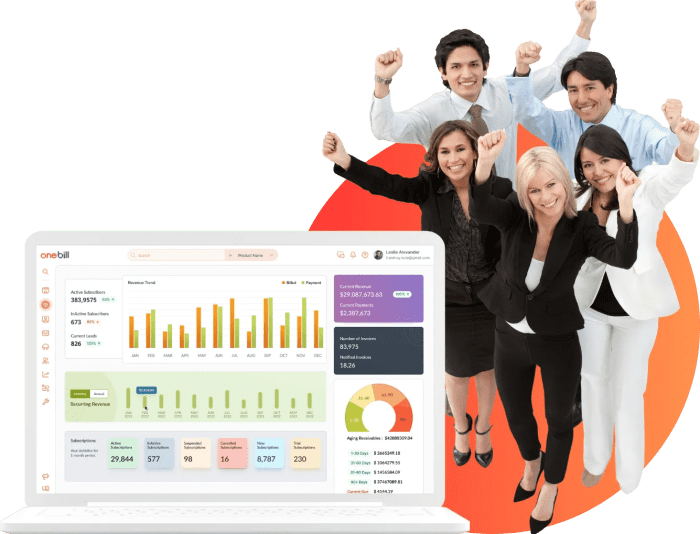In today’s competitive landscape, efficient and effective field service management is crucial for businesses of all sizes. Field service CRM software plays a pivotal role in streamlining operations, boosting productivity, and enhancing customer satisfaction. This comprehensive guide delves into the intricacies of field service CRM, exploring its features, benefits, selection criteria, and frequently asked questions.
Understanding Field Service CRM Software
Field service CRM software is a specialized type of customer relationship management (CRM) system designed to manage and optimize the operations of field service teams. These teams, often comprised of technicians, engineers, or other skilled professionals, provide services on-site at customer locations. The software integrates various functionalities to streamline scheduling, dispatching, communication, inventory management, and more, all while maintaining a centralized view of customer interactions and service history.
Key Features of Field Service CRM Software
- Scheduling and Dispatching: Intelligent scheduling algorithms optimize technician routes, minimizing travel time and maximizing service appointments. Real-time tracking and updates ensure efficient dispatching and resource allocation. Features like drag-and-drop scheduling and automated appointment reminders enhance efficiency.
- Work Order Management: Efficiently create, assign, and track work orders. The system should allow for detailed descriptions of the service required, attachment of relevant documents (e.g., diagrams, manuals), and updates on progress.
- Mobile Accessibility: Technicians need access to crucial information on the go. A robust mobile app allows for real-time updates, access to customer information, and completion of work orders directly from the field.
- Inventory Management: Track parts, equipment, and tools. Low stock alerts prevent service delays, and integration with inventory systems ensures accurate tracking.
- Customer Relationship Management (CRM): Integrate customer data, service history, and communication logs for a comprehensive view of each customer. This facilitates personalized service and proactive problem-solving.
- Reporting and Analytics: Gain insights into key performance indicators (KPIs) such as technician productivity, service completion rates, and customer satisfaction. Data-driven insights allow for informed decision-making and process optimization.
- Integration Capabilities: Seamless integration with other business systems, such as accounting software, ERP systems, and mapping services, is essential for a holistic view of operations.
- Automated Communication: Automated email and SMS notifications for appointments, updates, and confirmations improve communication and reduce administrative overhead.
- GPS Tracking and Route Optimization: Real-time tracking of technicians allows for efficient dispatching and improved response times. Route optimization features minimize travel time and fuel costs.
- Service Level Agreements (SLAs): Track and manage service level agreements to ensure timely service delivery and meet customer expectations.
Benefits of Implementing Field Service CRM Software
Investing in field service CRM software offers numerous benefits, impacting various aspects of a business:
- Improved Efficiency and Productivity: Streamlined workflows, automated tasks, and optimized scheduling lead to increased technician productivity and reduced operational costs.
- Enhanced Customer Satisfaction: Faster response times, improved communication, and personalized service contribute to higher customer satisfaction and loyalty.
- Reduced Operational Costs: Optimized routing, reduced travel time, and improved inventory management contribute to significant cost savings.
- Better Resource Allocation: Real-time visibility into technician availability and workload enables better resource allocation and prevents overbooking.
- Improved First-Time Fix Rates: Access to detailed customer history and work order information helps technicians resolve issues more efficiently on the first visit.
- Data-Driven Decision Making: Comprehensive reporting and analytics provide insights into operational performance, allowing for informed decision-making and continuous improvement.
- Increased Revenue: Improved efficiency, customer satisfaction, and optimized resource allocation contribute to increased revenue and profitability.
- Better Collaboration: Centralized communication and information sharing improve collaboration among technicians, dispatchers, and management.
Choosing the Right Field Service CRM Software
Selecting the right field service CRM software requires careful consideration of several factors:
- Business Size and Needs: Choose a system that scales with your business and meets your specific requirements.
- Integration Capabilities: Ensure seamless integration with existing systems such as accounting software, ERP, and inventory management systems.
- User-Friendliness: The software should be intuitive and easy to use for both technicians and office staff.
- Mobile Accessibility: A robust mobile app is essential for technicians to access crucial information on the go.
- Reporting and Analytics: The system should provide comprehensive reporting and analytics capabilities to track key performance indicators.
- Customer Support: Reliable customer support is crucial for resolving issues and ensuring smooth operation.
- Cost and Pricing: Consider the total cost of ownership, including licensing fees, implementation costs, and ongoing maintenance.
- Scalability: The software should be able to accommodate your business’s growth and changing needs.
Frequently Asked Questions (FAQ)
- Q: What is the difference between field service management software and CRM software? A: While both manage customer interactions, field service management software is specifically designed for managing field technicians and their work orders, often integrating with CRM systems for a holistic view of customer interactions and service history.
- Q: How much does field service CRM software cost? A: Pricing varies significantly depending on the features, number of users, and vendor. Expect a range from subscription-based models to more expensive, enterprise-level solutions.
- Q: Can field service CRM software integrate with my existing systems? A: Many field service CRM systems offer integration capabilities with various business systems, such as accounting software, ERP systems, and inventory management systems. Check for API integrations or pre-built connectors.
- Q: How long does it take to implement field service CRM software? A: Implementation time varies depending on the complexity of the system and the size of your business. Expect a range from a few weeks to several months.
- Q: What are the key performance indicators (KPIs) to track with field service CRM software? A: Key KPIs include first-time fix rates, average service time, customer satisfaction scores, technician utilization rates, and cost per service call.
Conclusion
Field service CRM software is an invaluable tool for businesses that rely on field service teams. By streamlining operations, enhancing communication, and improving efficiency, it contributes significantly to increased productivity, reduced costs, and improved customer satisfaction. Choosing the right software requires careful consideration of your specific needs and a thorough evaluation of available options. Investing in a robust field service CRM system is a strategic move towards achieving operational excellence and sustained business growth.
References
While specific product recommendations are avoided to maintain neutrality, reputable sources for researching Field Service Management (FSM) software include Gartner, Forrester, and Capterra. These research firms often publish reports and rankings comparing different FSM solutions.

Source: onebillsoftware.com
Call to Action: Ready to optimize your field service operations? Explore available field service CRM software solutions today and discover how you can transform your business!
FAQ Summary: Field Service Crm Software
What are the key features of field service CRM software?

Source: getfieldy.com
Key features often include scheduling and dispatch, mobile workforce management, customer communication tools, inventory management, reporting and analytics, and integration with other business systems.
How much does field service CRM software cost?
Pricing varies greatly depending on the vendor, features included, and number of users. Expect a range from subscription-based models with tiered pricing to more comprehensive, enterprise-level solutions with higher costs.
How long does it take to implement field service CRM software?
Implementation time depends on the complexity of the system and the size of the business. Smaller businesses might see implementation within weeks, while larger enterprises may require several months.
What are the common challenges in implementing field service CRM software?
Common challenges include data migration, user adoption, integration with existing systems, and ongoing training and support.
